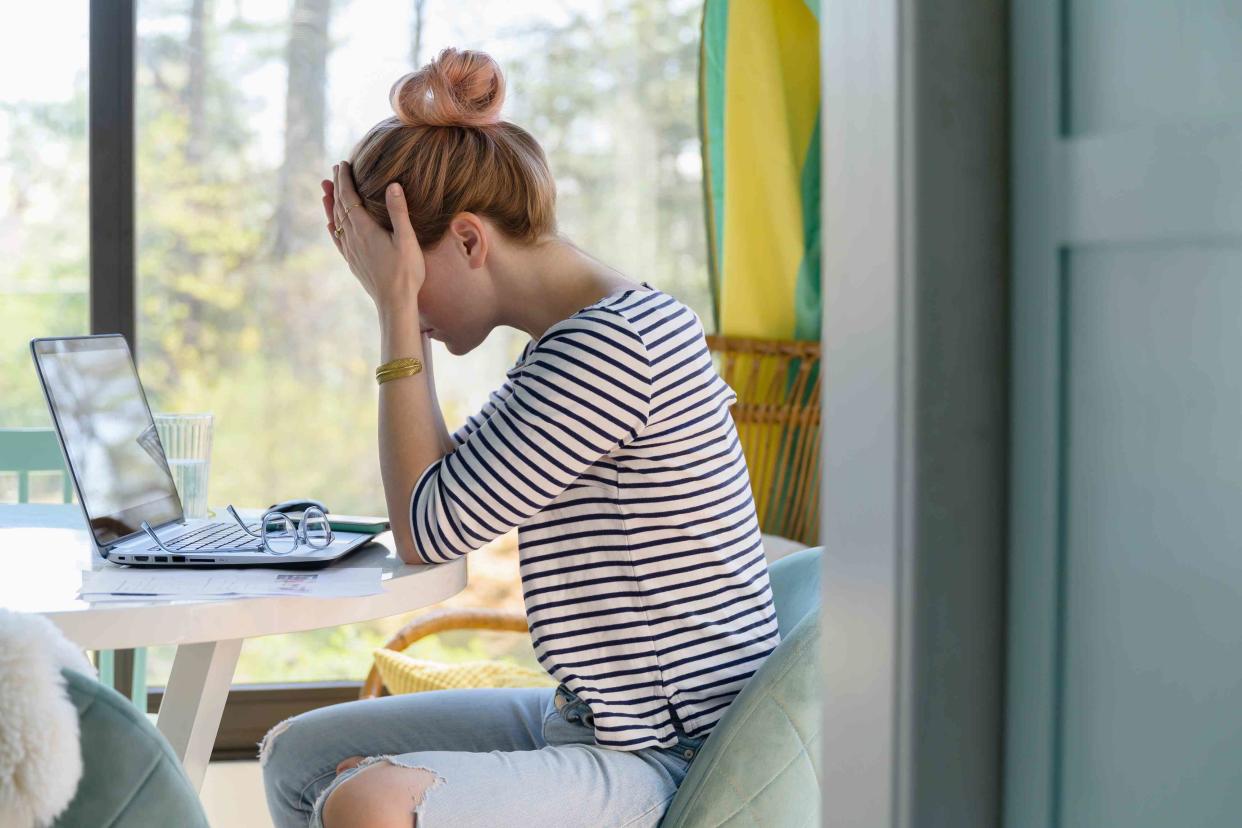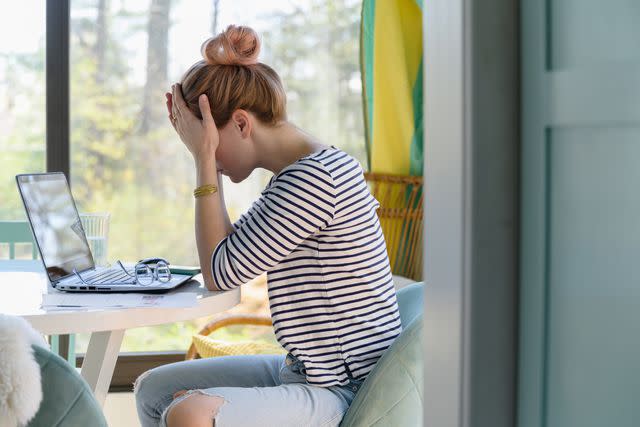Anal Itching (Pruritus Ani): Symptoms, Causes, and Treatments

Jamie Grill / Getty Images
Medically reviewed by Sonal Kumar
Anal itching is when the area around and at the edge of the anus becomes irritated and itchy. There are several reasons why anal itching could occur. These include diet, digestive issues, chemical irritants (like scented soap or creams), hemorrhoids (swollen veins around the anus), an infection such as a sexually transmitted infection (STI), a skin condition, or medication.
If anal itching is accompanied by a fever, bleeding, or a rash, it's advised to seek medical attention.
This article covers why anal itching occurs, how to treat anal itching, how to diagnose the causes of anal itching, and when or why anal itching might require visiting a healthcare professional.

Jamie Grill / Getty Images
Anal Itching and Other Symptoms
Anal itching is a symptom that can accompany other symptoms, depending on its cause. These might include:
Lumps or warts
Bleeding
Loose stools
Swelling
Sores
Skin irritation in other places on the body
Modifying some of your hygiene or daily habits could help heal and prevent anal itching. These include:
Keeping the bottom clean and dry, especially after bowel movements
Switching to softer products like toilet paper and wipes when wiping
Investing in a bidet to avoid rubbing
Patting dry after showering or cleaning the anus instead of rubbing
Wearing loose underwear and clothing
Increasing fiber intake or taking fiber supplements
Lowering caffeine and alcohol intake
Causes of Anal Itching
There are several possibilities for why anal itching might occur. They include the following factors.
Dietary Issues
Foods that cause gas or problems with digestion could cause anal itching. Some foods also cause excess mucus, which can also irritate the bottom.
The following foods and drinks could cause anal itching.
Chocolate
Citrus fruits
Tomatoes
Vitamin C tablets
Milk
Soda
Alcohol
Digestive Problems
The following digestive problems could cause anal itching:
Diarrhea or incontinence: Loose or watery stools can stick to the opening of the anus, which can lead to anal itching.
Gas: Gas can be a sign of gastrointestinal issues, which can cause anal itching.
Low dietary fiber: Dietary fiber or fiber supplements can help solidify stools so your bottom stays cleaner and is less itchy.
Constipation: Irritation can arise from either not passing stools regularly or not being able to completely empty the bowel.
Chemical or Physical Irritants
There are several irritants that could cause anal itching, including:
Perfumes, such as scents in lotions or deodorant
Dyes in soaps or toilet paper
Tight clothing
Rough towels or toilet paper
Creams and ointments
Feminine hygiene products
Perfumes, such as scents in lotions
Talcum powder
Medicated soaps or wipes
Hemorrhoids
Hemorrhoids are swollen veins around the anus. They usually go away on their own, or they can be removed by a healthcare professional via surgery. They can be caused by:
A diet low in fiber
Digestive issues like diarrhea or constipation
Straining with bowel movements
Pregnancy
Aging, which can result in weak muscles at the rectum
Lifting heavy objects
Infections and Anal Itching
Anal itching can be a symptom for bacteria or viruses in or around the rectum. These include:
Sexually transmitted infections (STIs): Several STIs, including gonorrhea or herpes, can cause anal itching.
Yeast infections: While the human body produces yeast candida regularly, issues with the immune system can cause an overgrowth, which can lead to an itchy yeast infection.
Eczema, dermatitis, or other skin conditions: Eczema is an autoimmune disorder that causes dry or itchy skin, and it, as well as other skin disorders, could also cause the anus to itch.
Ringworm: This is a fungal skin infection that causes a circular rash on the skin.
Parasites: Threadworms or pinworms are parasites that can be released via the anus. These parasites normally affect children.
Medication
Medications that could cause anal itching include:
Ointments and wipes for the anal area
Steroid creams
Essential oils
Antibiotics
Treating anal itching can include home remedies or medications, such as:
Replacing rough toilet paper with unscented wipes, wet toilet paper, or water when wiping, and then patting dry
Avoiding aggressive rubbing or scratching of the anal area
Avoiding scented or perfumed personal products
Wearing loose clothing and underwear
Avoiding spicy foods, caffeine, alcohol, and other digestive triggers
Applying over-the-counter creams or ointments
Taking fiber supplements
When to Seek Medical Attention
If at-home remedies or over-the-counter creams do not heal anal itching within two to three weeks, medical attention is advised. Also, if the following symptoms occur, please see a healthcare professional:
Anal bleeding
A rash or other bumps around the anus
Fever
Diagnosing Anal Itching
If anal itching doesn't heal at home, you should consider seeking a diagnosis from a healthcare provider. Your visit may include the following:
Visually examining the area.
Swabbing or scraping the anus area to get a sample for laboratory testing: This could help diagnose bacterial STIs or parasites.
Testing for STIs: This might include a blood test or swabbing around the anus and testing the sample in a lab.
Anoscopy or rigid proctosigmoidoscopy: This is when tubed instruments are used to view inside the anus for internal hemorrhoids.
Allergy or patch testing: These tests can be used to identify the origin of a rash or whether a condition like eczema is present.
Summary
Anal itching can usually be treated at home. Remedies for an itchy bottom might include switching to softer hygiene products to clean the bottom or using water after releasing stools, wearing loser underwear and clothing, pat drying and avoiding rubbing the area, and dietary changes.
If anal itching doesn't heal within two to three weeks, seeking medical attention is advised. A healthcare professional might conduct tests for STIs, allergies, hemorrhoids, or infections to diagnose the origin of anal itching.

